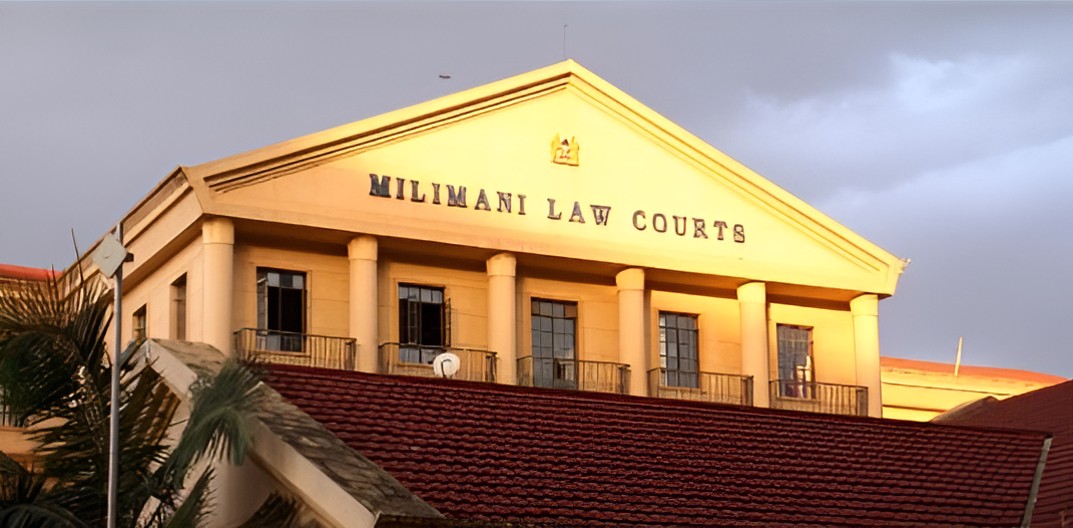High Court declines to hear petition on Treasury tax exemptions, says Supreme Court has jurisdiction

Justice Chacha Mwita ruled that although the petition raised significant concerns regarding public finance and executive power, his court lacked jurisdiction to intervene at this stage.
The High Court has struck out a petition challenging the National Treasury’s authority to exempt certain incomes from tax through gazette notices, citing the matter’s active consideration by the Supreme Court in a related case.
Justice Chacha Mwita ruled that although the petition raised significant concerns regarding public finance and executive power, his court lacked jurisdiction to intervene at this stage.
More To Read
- Treasury under fire for using Sh2.67 trillion in domestic loans on recurrent spending
- Blow to State as court declares eCitizen Sh50 charge illegal, halts mandatory school fee payment via platform
- National Treasury secures Sh437.8 billion loan to plug budget deficit
- MPs raise alarm over alleged misappropriation of College of Insurance land
- MPs question rising debt despite Treasury’s reduced CBK borrowing
- National Treasury says weak revenue, high debt repayments straining Kenya’s budget
The case was brought by Magare Gikenyi, who contested the constitutionality of Section 13(2) of the Income Tax Act.
The provision allows the Treasury to exempt specific incomes from taxation through gazette notices—a mechanism commonly used in foreign-funded government projects.
Justice Mwita noted that the issue is already before the Supreme Court in Petition E006 of 2025, which arose after the Court of Appeal upheld the validity of Section 13(2) in an earlier decision.
“It would be inappropriate for this court to make any determination while the country’s highest court is seized of the dispute,” Justice Mwita said.
Judicial consistency
Justice Mwita stressed the importance of judicial consistency and respecting the hierarchy of courts, noting that any ruling by the High Court could risk conflicting with ongoing deliberations at the Supreme Court.
While acknowledging that the petition raised weighty constitutional issues—particularly around the limits of executive authority in public finance—Justice Mwita maintained that it was not within his court’s mandate to rule on a matter already under consideration by a superior court.
By striking out the petition rather than dismissing it outright, the judge explained that he aimed to preserve the petitioner’s right to revisit the case, depending on the outcome of the Supreme Court’s decision.
“Once the Supreme Court renders its decision, you can always file another petition. That’s why I did not dismiss the petition but struck it out, to enable the party to come back should circumstances change, rather than making the matter res judicata,” he told Gikenyi.
Following the ruling, Gikenyi sought to make an oral application for a review of the decision, citing new evidence and alleged errors in the judgment. However, the application was strongly opposed by State Counsel Kaumba, who appeared on behalf of the Attorney General.
Kaumba argued that the Court of Appeal had already upheld the validity of Section 13(2), and that the matter was now entirely within the jurisdiction of the Supreme Court.
“The petition of appeal is pending determination before the Supreme Court, parties have filed their responses, and we are awaiting a hearing date before the Supreme Court,” he said.
Make formal application
Justice Mwita advised Gikenyi to file a formal application if he intended to pursue a review of the ruling, and subsequently set timelines for the parties to submit their respective filings.
The dispute over Section 13(2) of the Income Tax Act traces back to a 2023 petition filed by Eliud Matindi. In that case, the High Court ruled in favour of the petitioners, declaring the provision unconstitutional for violating Article 210 of the Constitution, which mandates that all taxation measures, including exemptions, be clearly stipulated through legislation passed by Parliament.
However, that decision was overturned by the Court of Appeal in Civil Appeal E330 of 2023.
The appellate judges held that the powers granted to the Treasury under Section 13(2) amounted to a legitimate form of delegated legislative authority, as permitted by Article 94(5) of the Constitution.
They further held that exemptions arising from bilateral or multilateral agreements did not require the same level of public participation as ordinary laws, owing to their international and specialised nature.
Unconvinced by the appellate court’s ruling, the petitioners escalated the matter to the Supreme Court, which is now set to deliver the final verdict on the legality of Treasury-issued tax exemptions through gazette notices.
Top Stories Today















































